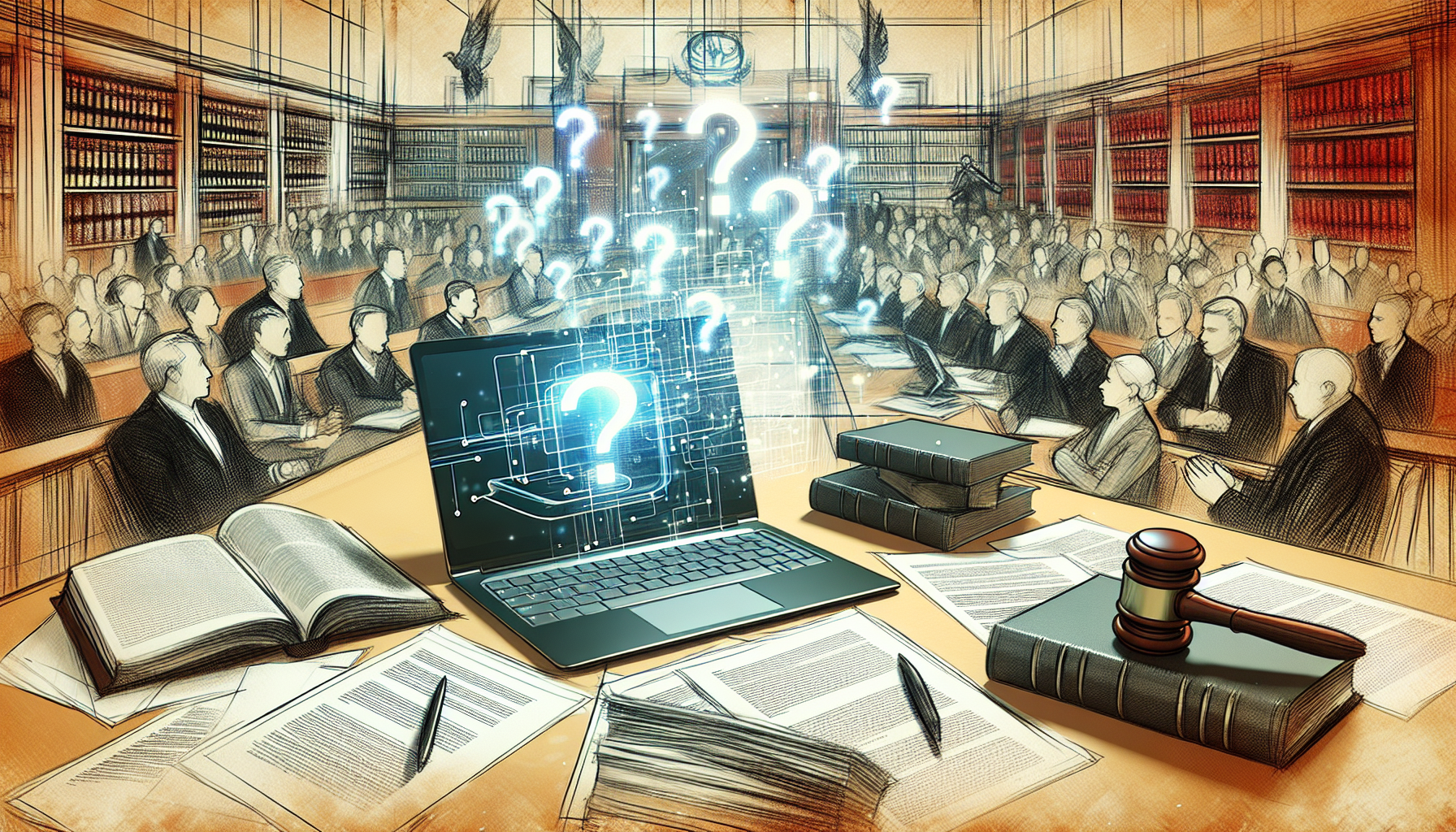
Introduction: Setting the Stage for Efficient Estate Planning
Increased efficiency in estate planning is paramount for legal professionals aiming to provide top-notch service to their clients. Streamlining client onboarding processes not only enhances client satisfaction but also significantly reduces administrative burdens. Achieving this requires the adoption of innovative technologies that can simplify and expedite various stages of the estate planning workflow.
The advent of technology and Artificial Intelligence (AI) has revolutionized modern legal practices. Tools like ChatGPT, an advanced language model developed by OpenAI, offer a cutting-edge approach to overcoming traditional onboarding and workflow challenges. By leveraging AI, law firms can achieve greater precision and efficiency, setting the stage for more focused and profitable practice management.
Understanding ChatGPT: Your Virtual Paralegal Assistant
At its core, ChatGPT is a language model that harnesses the power of AI to interpret and generate human-like text. With its capacity to process large amounts of data and understand context, ChatGPT can serve as a virtual paralegal assistant, supporting legal practitioners in various tasks.
Particularly, ChatGPT offers legal-specific advantages that make it an invaluable asset for law firms. It can rapidly produce drafts of documents, answer client queries with precision, and aid in the collection of essential client information. Its ability to handle routine and repetitive tasks allows attorneys to focus on the more intricate aspects of estate planning, ultimately fostering a more efficient practice environment.
Also read:
Crafting the Perfect Prompts: The Art of Asking the Right Questions
Effective prompt creation is pivotal to maximizing ChatGPT’s utility in legal tasks. The ability to generate precise and contextually relevant responses hinges on the clarity and specificity of the prompts provided.
General Guidelines for Effective Prompt Creation
- Be Specific: Clearly define the scope of the request.
- Provide Context: Include background information to guide the AI.
- Use Simple Language: Avoid overly complex sentences to reduce ambiguity.
- Set Parameters: Specify formats or limits to tailor the responses.
Example Prompts for Gathering Client Information
- “Can you list all the assets you own and their approximate values?”
- “Do you have any existing wills or estate plans? Please provide details.”
- “Describe any specific bequests you wish to make to family or charities.”
- “Please provide information about any outstanding debts or liabilities.”
Techniques for Ensuring Comprehensive Data Collection
To capture comprehensive client data, consider follow-up prompts to delve deeper based on initial responses. For example, after asking for asset details, a follow-up might be:
“You mentioned owning real estate. Can you provide the addresses and current market values of each property?”
This iterative approach ensures thorough and accurate information gathering, crucial for robust estate planning.
Also read:
Automating Routine Tasks: Elevating Efficiency with AI
One of ChatGPT’s strongest suits is the automation of routine tasks, which significantly lifts the burden of administrative workload from legal teams.
Using ChatGPT for Document Drafting and Review
ChatGPT can draft and review documents with remarkable speed and accuracy. For instance, generating initial drafts of wills, trusts, and other estate planning documents can be efficiently handled by the AI, allowing human oversight to focus on refining and personalizing these drafts.
Setting Up Automated Follow-Ups and Reminders
Law firms can leverage ChatGPT to automate follow-ups and reminders for both clients and internal teams. This ensures that no critical step in the estate planning process is missed, significantly enhancing client service and operational efficiency.
Reducing Administrative Workload
By offloading routine tasks to ChatGPT, attorneys and paralegals can allocate more time to strategic and high-value activities, leading to a more productive and profitable practice.
Also read:
Enhancing Client Interaction: Personalized and Responsive Communication
Corporate clients demand personalized, responsive communication—qualities that ChatGPT excels at delivering.
Crafting Client-Centric Responses with ChatGPT
Utilizing ChatGPT allows for quick, tailored responses to client queries. With its ability to access and synthesize vast data sets, it can provide precise answers and solutions, ensuring that client interactions are both attentive and efficient.
Maintaining Professional Tone and Accuracy
The AI’s proficiency in maintaining a professional tone is crucial. By setting the right prompts, ChatGPT responses can reflect the firm’s ethos and professionalism, thereby maintaining client trust and satisfaction.
Addressing Common Client Queries Efficiently
ChatGPT can rapidly address frequent questions regarding estate planning—such as the steps involved, the necessary documents, and timelines—freeing up human resources to handle more complex and nuanced client concerns.
Also read:
Quality Control: Ensuring Accuracy and Compliance
Despite its capabilities, AI cannot entirely replace human expertise, making quality control essential when using ChatGPT in legal practices.
Techniques for Verifying AI-Generated Information
- Double-Check Key Details: Always verify critical information and legal citations.
- Human Oversight: Ensure that human oversight is involved in reviewing AI-generated content.
- Compliance Checks: Regularly review outputs for compliance with jurisdictional regulations.
Also read:
Overcoming Limitations: Understanding AI Boundaries
While ChatGPT is a powerful tool, it has limitations. It is essential to identify scenarios where human judgment and expertise are irreplaceable—particularly in nuanced, highly-specialized aspects of legal practice. Managing client expectations regarding AI outputs ensure that they understand both the capabilities and the limits of technology.
Also read:
Conclusion: The Future of Estate Planning with AI
In conclusion, integrating ChatGPT into estate planning practices offers numerous benefits: enhanced efficiency, personalized client interaction, and significant reductions in administrative workloads. As AI technology continues to evolve, legal professionals must engage in continuous learning and adaptation to stay ahead of the curve. Embracing these advancements ensures that law firms can provide superior service while navigating the complex landscape of modern legal practice.


